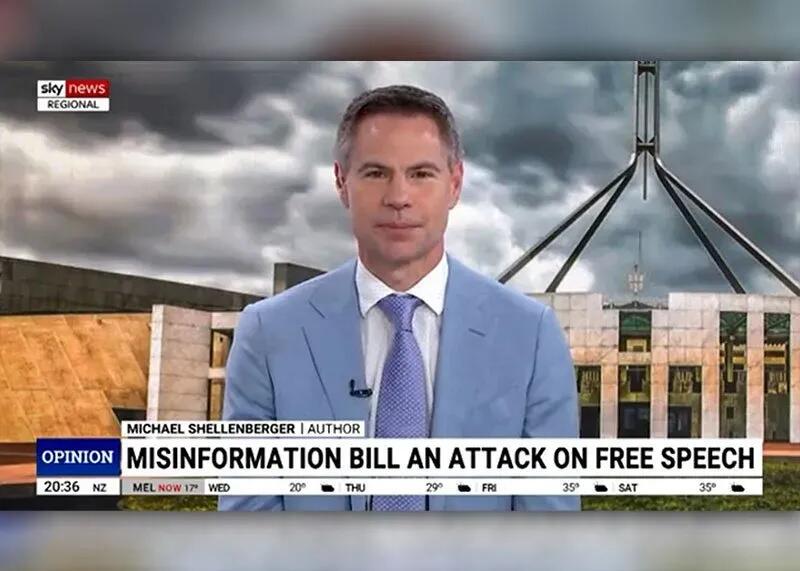By Maryanne Demas through the Brownstone Institute,
It’s official.
The Australian government’s attempt to push through laws to combat online misinformation has been blocked after the Green Party announced it would not support the controversial bill.
“We are concerned that this bill doesn’t really do what it has to do when it comes to stopping the deliberate mass dissemination of false and harmful information,” green senator Sarah Hanson-Young said.
This unexpected move is arguably the final nail in the coffin for a bill designed to give the media watchdog unprecedented regulatory powers to monitor digital content and identify “misinformation.”
Domino effect
An interesting example of parliamentary dynamics unfolded over the course of this week, when a number of senators announced that they were one by one opposed to the bill.
Senators Lidia Thorpe, Tammy Tyrell, David Pocock, Jacqui Lambie, Gerard Rennick, Fatima Payman and others announced their opposition.
Their causes ranged from concerns about government overreaction and vague definitions of misinformation to consequences for political discourse and possible abuse. Each statement yawned in support of the bill, creating a domino effect.
The urgent call to action led to a significant storm of public outrage. Australians concerned about their digital rights flooded senators with emails, petitions and social media campaigns.
The large volume of these communications likely played an important role in shaping the senators’ positions.
The vigorous debate also attracted international attention.
American writer and freedom of speech campaigner Michael Shellenberger visited Australia to warn that these “totalitarian” laws affect democracy and blur the line between regulating harmful content and stifling dissent.
November 20, 2024 – Michael Shellenberger on Sky News Australia
According to Shellenberger, misinformation should be countered with more and better information, not suppression or censorship.
Elon Musk, whose influence in the digital sphere is indisputable, especially after taking the helm of X, expressed similar views and has vocally expressed his contempt for what he perceives as an “overreaction” in digital governance, labeling the failed bill “fascist.”
Digital ID for under-16s
He has not quelled government enthusiasm over the proposal to ban people under the age of 16 from accessing social media. This bill, which introduces a mandatory age verification process, will affect digital identity and privacy.
Thursday’s swift legislative push allowed for only a 24-hour period for public proposals, meaning controversial legislation will be accelerated without proper public scrutiny.
The bill would require all Australians to undergo identity checks to use social media, raising concerns about the collection and possible misuse of personal information. The process may involve the collection of biometric data that poses a risk of data breach or misuse.
Today, Musk described the law as a “backdoor way to control access to the internet,” which allows platforms to be punished, including X, with steep fines if they allow children under the age of 16 to have social media accounts.
The combination of these legislative proposals (a misinformation bill and a digital ID for those under 16) paints a picture of the government’s intention to tighten control over what you can say and read online.
What happens next?
After this week’s news, the Labour government must now withdraw and reassess.
It may decide to abandon the legislative approach entirely and focus on other tools such as public educational campaigns or collaborating with social media platforms on voluntary codes of conduct. But this is unlikely.
In all likelihood, the government will go back to the drawing board to either review the bill with stricter free speech protections or explore alternative, less direct methods of dealing with misinformation in hopes of reviving the bill in the new year.
Republished from the author’s sublayer























